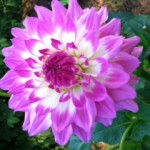As a young student I excelled in languages, art, music and English. I started college with an open mind and  considered music, specifically piano, as a career. Knowing in my heart I was not a concert pianist, I feared my lot as a musician would be as an accompanist for performers or working from my home or studio, alone with young students, which seemed too solitary a career.
considered music, specifically piano, as a career. Knowing in my heart I was not a concert pianist, I feared my lot as a musician would be as an accompanist for performers or working from my home or studio, alone with young students, which seemed too solitary a career.
My music theory professor and choir director both encouraged me to pursue music as a profession. The theory class taught me about music’s mathematical foundations. Perhaps this is why I always received “As” in math? Yet I craved the human interaction not afforded by hours and hours of solitary practice in the University’s practice studios. When my beloved piano professor passed away suddenly of a brain aneurysm at the age of 30, I switched to the people path and pursued nursing as a career.
Nursing provided me opportunities to meet people from many different walks of life and cultures, and to hear their stories as they faced health and life challenges. It was an honor and privilege to share poignant times in their lives and to meet their families.
In trauma/surgical intensive care nursing I found that I could master medical technologies and the skills to use them. However, most of the patients I cared for were unconscious and unable to communicate. I decided to move into another area of nursing, public health, and this became my true love.
Public health nursing taught me the importance of being flexible, accepting people on their own terms of home and culture, and learning to translate complex medical and health information into language that everyday people could understand apply in their own lives.
I remember teaching a transient man how to apply a dressing in the cleanest manner possible once he got back on the train. I remember caring for an elderly former midwife from the South who said she couldn’t believe “a white nurse is ‘waitin’ on me.’” I remember counseling an elderly Filipino bachelor how to adapt his daily meal eating out in Seattle’s International District to his prescribed low sodium diet. “Never,” he said, “has anyone talked to me about how I should eat healthy in my own way.” Public health nursing was indeed a creative field, an art in understanding people and their needs, and translating information from medicine and science so that people could live healthier lives.
Mid-career I switched from nursing into healthcare communications. In this hectic arena I tried to put relationships first and foremost for my employing organizations, whether in nonprofit, university or industry settings. Clients, students, legislators, alumnae, and customers came first in my order of priorities. In meeting the demands of all these employers I often found myself sitting alone in an office or cubicle at my computer, pounding out the prose—often late into the night at home.
It seems my career has come full circle, from an 18-year-old at the piano keyboard for four-hour stretches in the practice studios to a healthcare/science communicator writing with my PC at home, and in libraries and coffee houses with my laptop
It seems that walking the tightrope between art and science is a way of life for me.
~

